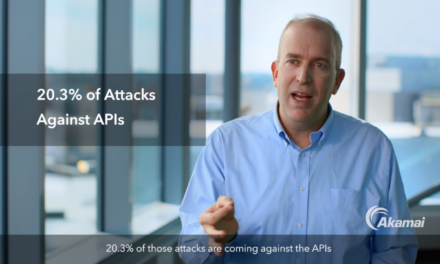What Splunk’s State of Security 2022 Report has to say about Asia Pacific.
Singapore, Sydney, Tokyo, and New Delhi – these are cities in Asia Pacific (APAC) that function as global or regional hubs for many international companies.
With heavier responsibilities as corporate hubs, many APAC organizations face cybersecurity challenges such as higher costs, extreme pressure to develop relevant skills, and increased exposure to supply chain attacks.
According to Splunk’s State of Security 2022 Report, some key findings in Asia Pacific (APAC) include:
- 33% of APAC organizations reported outages to apps tied to security incidents on a weekly basis
- More APAC organizations (17%) are likely to suffer higher costs of downtime (where the hourly cost of downtime exceeds US$500,000 per hour) compared to their counterparts in Western Europe and North America (8% each)
- The CISO/cybersecurity leadership teams in APAC are consistently more likely to feel “extreme pressure” to develop skills in cloud fluency (42%), DevSecOps (48%) and data analysis (45%), compared with their global counterparts (averaging 30-35% in each area)
- APAC organizations are more likely to report cybersecurity incidents such as DDoS attacks (54%), fraudulent websites (49%), and software supply chain attacks (50%)
- More organizations in APAC (72%) have significantly increased their focus on third-party risk assessment activity, as a result of recent software supply chain attacks (e.g. Log4j, Kaseya, Solarwinds), compared to their counterparts in Western Europe (50%) and North America (54%)
Security teams falling behind
Over the past year, cybercriminals have become more persistent with sophisticated attack methods and security professionals are on high alert. But as pressures remain high, security professionals are finding it hard to cope with the new challenges and requirements, and the talent gap is not helping.
- 70% of security professionals in APAC have stated that it’s challenging to keep up with new security requirements
- 62% of security respondents reported skills and staffing challenges
- These challenges are leading to an increased burnout among security professionals in APAC, with 74% stating that their workers have resigned due to burnout.
With the threat landscape not letting up, many security professionals are betting on new technologies, such as AI/ML, to curve the impact of the ‘Great Resignation’ and support their teams.
Shifting ransomware defense mindset
Organizations’ mindsets toward ransomware have shifted somewhat, with ransomware attacks now a top-of-mind issue for organizations across every industry.
- To defend against the uptick in these events, 86% of APAC organizations have developed a ransomware playbook, but 80% of those organizations have developed the playbook after they’ve been successfully attacked
- However, according to Splunk SURGe’s research, ransomware encrypts faster than organizations are equipped to respond – with or without a playbook – so they need to shift their ransomware defenses to proactively defend against future attacks
Security teams are on the clock to catch up with a multi-cloud and cloud-first reality
- About 66% of organizations in APAC surveyed use multiple public cloud providers currently, and the number of businesses using multiple cloud providers is expected to continue growing to 89% over the next year
- 43% of APAC organizations have a cloud-first policy
These developments have put CISOs under immense pressure to exhibit cloud fluency, and complications are growing more severe over time. Many security teams are still in a state of confusion about multi-cloud operations and believe that cloud complexity is the next great security challenge.
The risk that comes with this Achilles heel is immeasurable, and Splunk advises organizations to dedicate time and training to understand the complex interplay of their public, private and SaaS solutions if constant vulnerability is to be avoided.

















